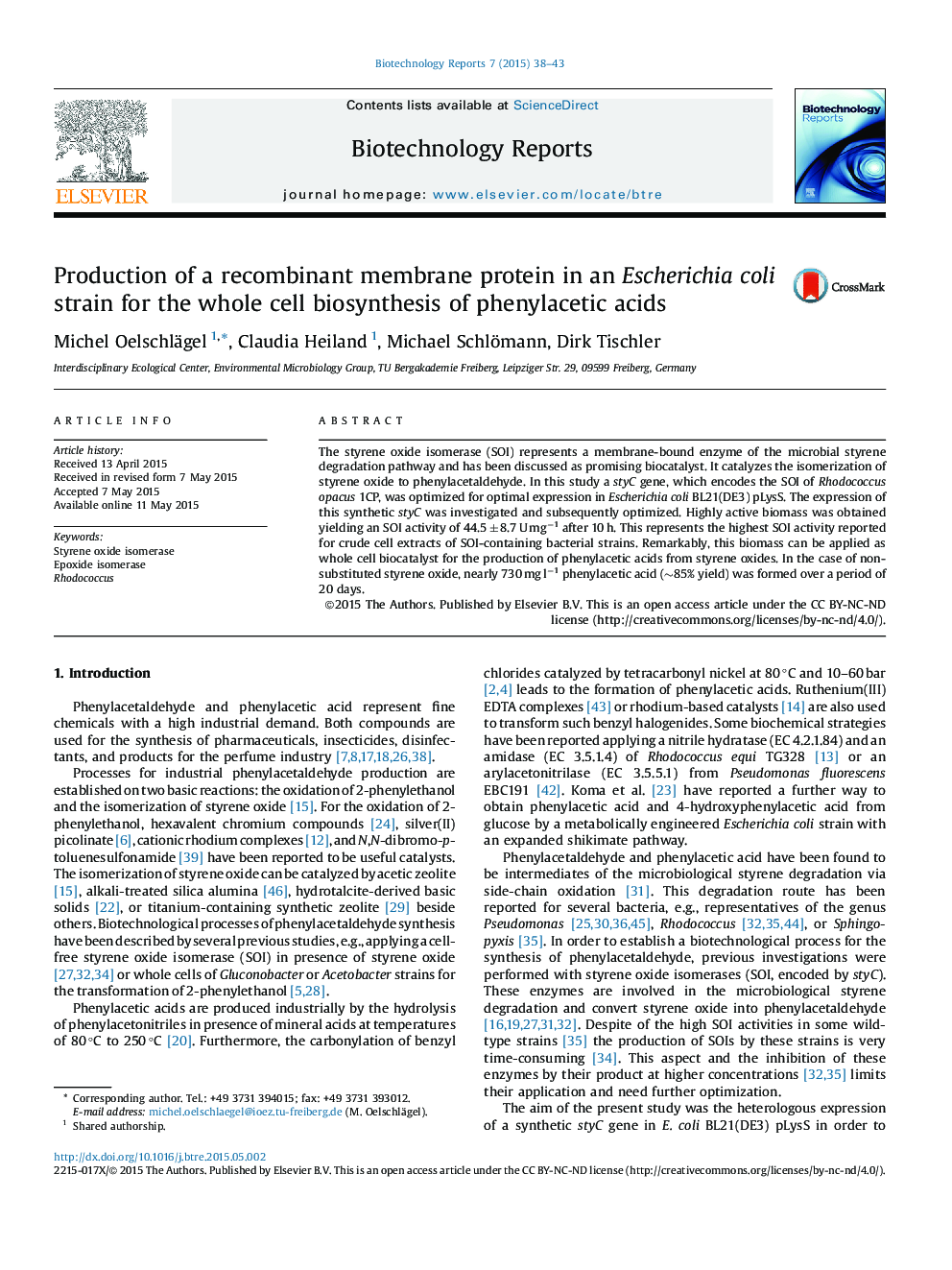| Article ID | Journal | Published Year | Pages | File Type |
|---|---|---|---|---|
| 870577 | Biotechnology Reports | 2015 | 6 Pages |
The styrene oxide isomerase (SOI) represents a membrane-bound enzyme of the microbial styrene degradation pathway and has been discussed as promising biocatalyst. It catalyzes the isomerization of styrene oxide to phenylacetaldehyde. In this study a styC gene, which encodes the SOI of Rhodococcus opacus 1CP, was optimized for optimal expression in Escherichia coli BL21(DE3) pLysS. The expression of this synthetic styC was investigated and subsequently optimized. Highly active biomass was obtained yielding an SOI activity of 44.5 ± 8.7 U mg−1 after 10 h. This represents the highest SOI activity reported for crude cell extracts of SOI-containing bacterial strains. Remarkably, this biomass can be applied as whole cell biocatalyst for the production of phenylacetic acids from styrene oxides. In the case of non-substituted styrene oxide, nearly 730 mg l−1 phenylacetic acid (∼85% yield) was formed over a period of 20 days.
Graphical abstractFigure optionsDownload full-size imageDownload as PowerPoint slide
